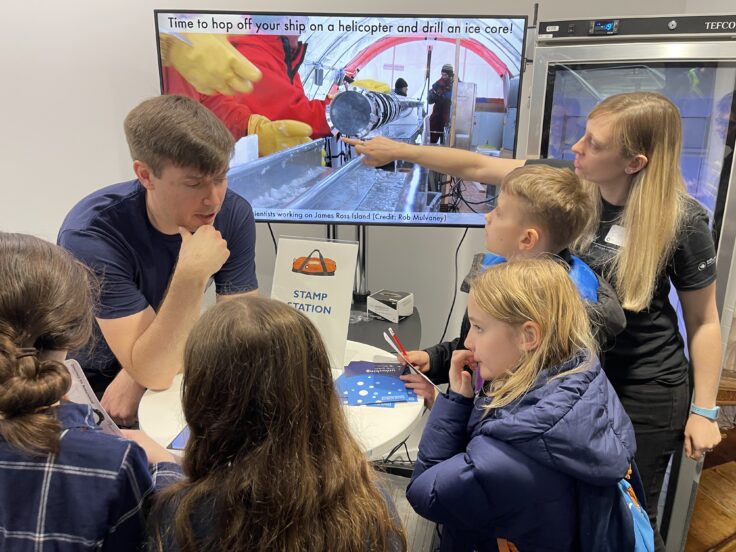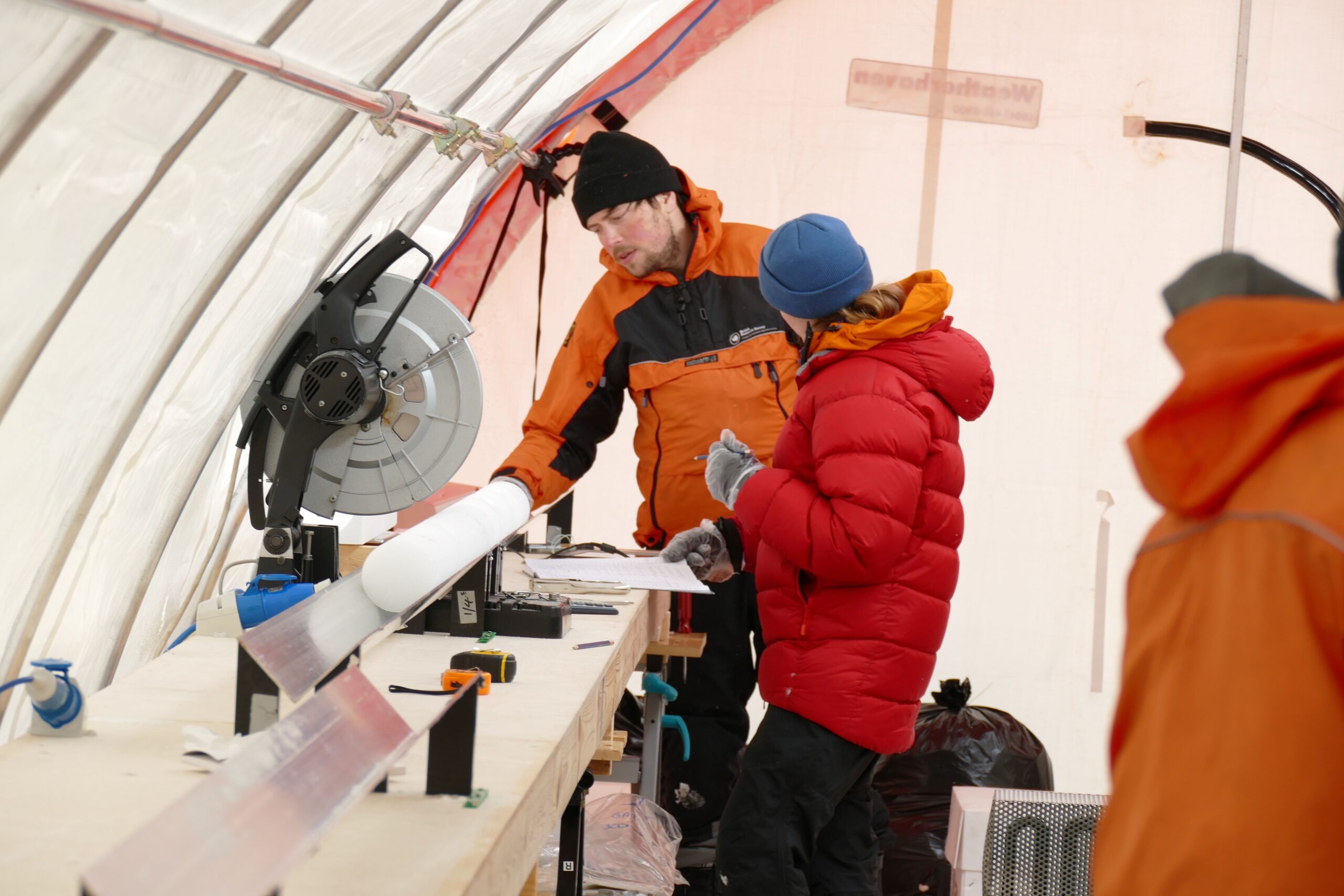Climate scientists from University of Cambridge and the British Antarctic Survey will be at the 2024 Royal Society Summer Science Exhibition, showcasing how they are using Antarctic ice cores to unlock the past and uncover clues to our planet's future.
The exhibit is one of 14 flagship exhibits at this year's Summer Science Exhibition. This annual event is a free, interactive experience for anyone curious about the latest advances in science and technology.
Antarctica is an extraordinary place: isolated, hostile and uninhabited. The icy landmass might seem distant, but changes happening in Antarctica affect us all. Antarctic ice helps regulate our planet's temperature and oceans, but the ice here is poised to melt rapidly - threatening coastal communities as sea levels rise.
The exhibit, 'Antarctica: unlocking the past', brings a small piece of Antarctica to London: giving visitors a chance to explore the continent from afar and even hold and listen to ancient air bubbles popping from a chunk of real Antarctic ice. They'll also get to meet the scientists who are probing Antarctica's icy depths to understand what makes the Antarctic ice sheets vulnerable.
Scientists are increasingly concerned about the potential for a sudden and catastrophic loss of Antarctic ice, with knock-on impacts as population hubs around the world, including here in the UK, face flooding. The West Antarctic Ice Sheet alone holds enough water to raise sea levels by about five metres.
As well as talking to researchers about the threats facing parts of the Antarctic ice sheet, visitors will be able to explore a 3D-model of Antarctica and listen to the crackle of ancient air escaping from a chunk of melting Antarctic ice.

Dr Thomas Bauska, a polar ice core expert and Royal Society University Research Fellow at British Antarctic Survey, said:
"We're so excited to be bringing Antarctic ice to the Summer Science Exhibition. Antarctica is so remote and is a place most people will never visit, and it can be hard to equate something happening so far away to our everyday lives. However, the threats facing the West Antarctic Ice Sheet are huge and were we to lose large parts of it because of climate change, it would have consequences for every one of us.
"Holding a piece of Antarctica in your hand and hearing the distinctive 'crackle and pop' of ancient air escaping as the ice melts is such a powerful way to connect with this remote and special place. Even though it's my day job to melt this ancient ice, I never get tired of how cool it is!"
Professor Eric Wolff, climate scientist and Royal Society Fellow from Cambridge's Department of Earth Science said:
"It's a huge privilege to have worked in such a beautiful, pristine and challenging environment. It's so exciting to be somewhere almost no-one has visited, extracting ice from deep in the ice sheet to learn about our past."
In 2019, Wolff and a team of Cambridge and British Antarctic Survey scientists spent 10 weeks drilling a 650-metre-long ice core from the West Antarctic Ice Sheet. Inside the ice core, the team found evidence that the ice sheet shrunk suddenly and dramatically at the end of the Last Ice Age, 8,000 years ago.

Clues in the ice told Wolff and his colleagues that the ice thinned by about 450 metres - that's more than the height of the Empire State Building - in just under 200 years. The find carries ominous implications for the future, said Wolff, "This is a warning from the past: if the ice sheet starts to melt in the future, it can lead to rapid and unstoppable sea level rise." Their findings were detailed earlier this year in the journal Nature Geoscience.
Through their exhibit, Bauska, Wolff and the team hope to raise awareness of the changes happening in the Antarctic, "What happens in Antarctica doesn't stay in Antarctica, it's not just an empty corner of the world, it's a place that should matter to us all," said Wolff.
The Summer Science Exhibition will open with an adults-only Lates event on Tuesday 2 July at 6pm at the Royal Society, Carlton House Terrace, London, SW1Y 5AG. The exhibition will open its doors to the wider public from 10am on Wednesday 3 July to Sunday 7 July 2024. The event is free and open to the public - no ticket required, but please register your interest via Eventbrite so we know you're attending.
This annual celebration of cutting-edge science is an exciting opportunity to meet world-leading researchers across the UK. The Society's flagship event will feature mind-blowing science, thought-provoking talks and jaw-dropping demonstrations, with more than 250 leading scientists on hand to answer questions and talk about their innovative work. Themes this year include bodies and brains, understanding our universe and tech for the planet.






